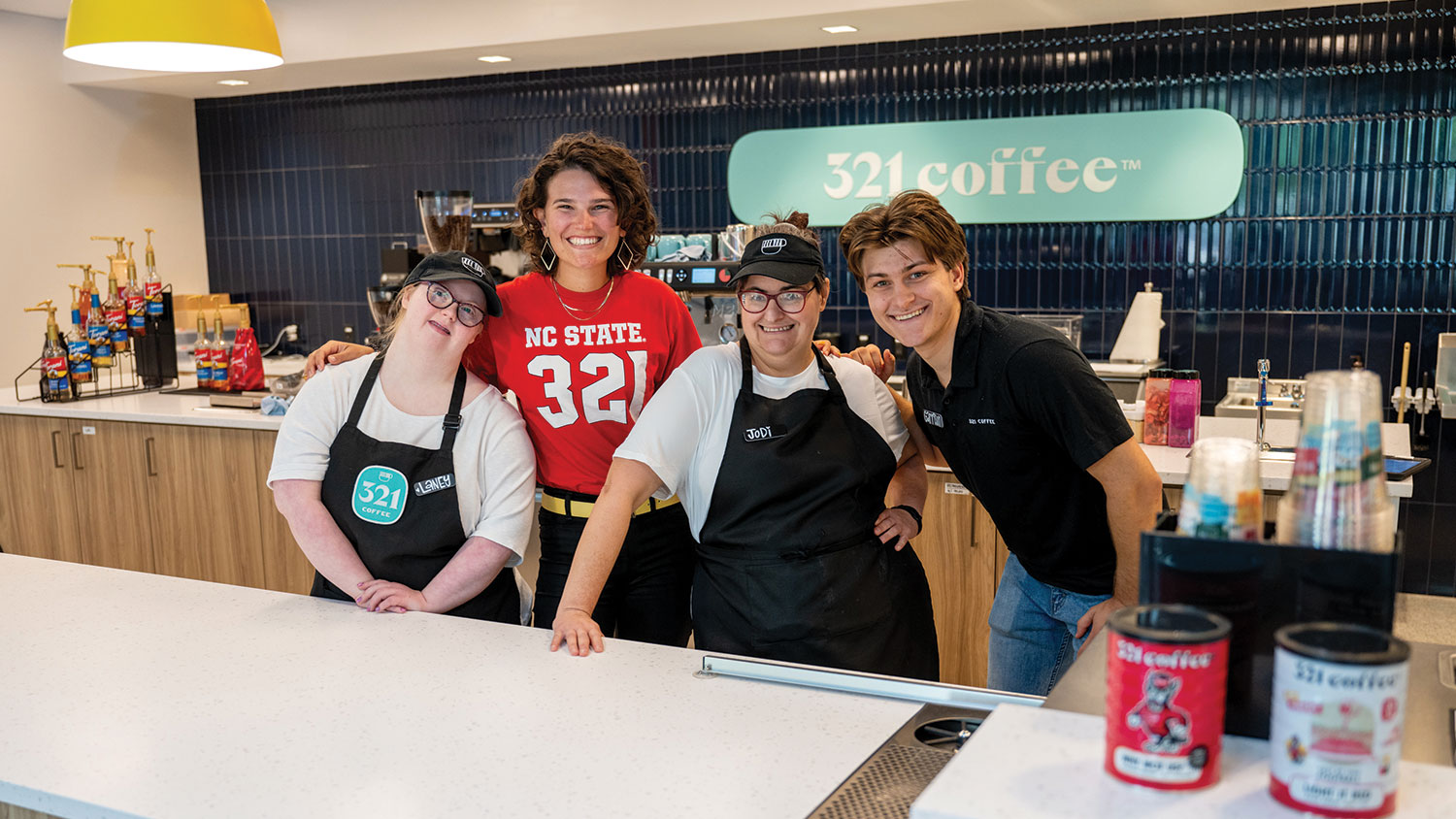Serendipitous Science
An accidental discovery leads a research team to a potentionally lifesaving vaccine for mosquito-borne diseases.

By Marti Maguire
Dennis Brown and Raquel Hernandez have been studying the structure and behavior of virus cells at the cellular level for decades. But they didn’t foresee that an accidental discovery in the lab would lead to a vaccine that could slow the spread of two devastating mosquito-borne diseases.
The husband-and-wife research team have created a vaccine for dengue and Chikungunya fevers that has earned approval from the FDA for clinical trials in humans. “We came into it completely by accident,” says Brown, William Neal Reynolds Distinguished Professor of biochemistry. Hernandez, a research associate professor of biochemistry, was conducting an experiment to stop a virus from developing by altering amino acids. The experiment worked, but the results were different in insects and mammals. “We put [the virus] into vertebrate cells, and it didn’t grow at all,” Brown says. “The stunning thing was when we put it into insect cells, it grew just fine.”
By removing certain amino acids, they were able to develop a vaccine that is designed to make humans immune from the virus without making them sick. A third vaccine, also heading to trials, targets the Zika virus.
If successful, the vaccine would fill a pressing need. Both dengue and Chikungunya fevers have growing footprints in tropical climates and can be fatal. The only dengue vaccine available is for children who have had the disease before. The first vaccine for Chikungunya fever recently earned FDA approval.
Cases of dengue have grown dramatically, from 500,000 cases in 2000 to more than 5 million in 2019, according to the World Health Organization, and Chikungunya fever cases have also spiked. The growth is in part due to the warming climate, which is ideal for mosquitoes.
Brown and Hernandez have created a company, Vacunax, to develop and test the vaccines, which have had successful trials in mice and monkeys.
Robert Johnston, a UNC-Chapel Hill virologist who was not involved in the new vaccines, says they represent a new understanding of how viruses work. “[Brown] was able to figure out a way to harness this in terms of a vaccine,” he says.
- Categories:


